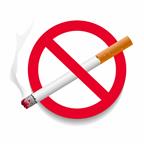Quality Sleep Information, Adult
Quality sleep is important for your mental and physical health. It also improves your quality of life. Quality sleep means you:
Are asleep for most of the time you are in bed.
Fall asleep within 30 minutes.
Wake up no more than once a night.
Are awake for no longer than 20 minutes if you do wake up during the night.
Most adults need 7–8 hours of quality sleep each night.
How can poor sleep affect me?
If you do not get enough quality sleep, you may have:
Mood swings.
Daytime sleepiness.
Decreased alertness, reaction time, and concentration.
Sleep disorders, such as insomnia and sleep apnea.
- Difficulty with:
Solving problems.
Coping with stress.
Paying attention.
These issues may affect your performance and productivity at work, school, and home. Lack of sleep may also put you at higher risk for accidents, suicide, and risky behaviors.
If you do not get quality sleep, you may also be at higher risk for several health problems, including:
Infections.
Type 2 diabetes.
Heart disease.
High blood pressure.
Obesity.
Worsening of long-term conditions, like arthritis, kidney disease, depression, Parkinson's disease, and epilepsy.
What actions can I take to get more quality sleep?
Sleep schedule and routine
-
Stick to a sleep schedule. Go to sleep and wake up at about the same time each day. Do not try to sleep less on weekdays and make up for lost sleep on weekends. This does not work.
-
Limit naps during the day to 30 minutes or less. Do not take naps in the late afternoon.
-
Make time to relax before bed. Reading, listening to music, or taking a hot bath promotes quality sleep.
-
Make your bedroom a place that promotes quality sleep. Keep your bedroom dark, quiet, and at a comfortable room temperature. Make sure your bed is comfortable.
-
Avoid using electronic devices that give off bright blue light for 30 minutes before bedtime. Your brain perceives bright blue light as sunlight. This includes television, phones, and computers.
-
If you are lying awake in bed for longer than 20 minutes, get up and do a relaxing activity until you feel sleepy.
Lifestyle
-
Try to get at least 30 minutes of exercise on most days. Do not exercise 2–3 hours before going to bed.
-
Do not use any products that contain nicotine or tobacco. These products include cigarettes, chewing tobacco, and vaping devices, such as e-cigarettes. If you need help quitting, ask your health care provider.
-
Do not drink caffeinated beverages for at least 8 hours before going to bed. Coffee, tea, and some sodas contain caffeine.
-
Do not drink alcohol or eat large meals close to bedtime.
-
Try to get at least 30 minutes of sunlight every day. Morning sunlight is best.
Medical concerns
- Work with your health care provider to treat medical conditions that may affect sleeping, such as:
-
Talk to your health care provider if you think any of your prescription medicines may cause you to have difficulty falling or staying asleep.
-
If you have sleep problems, talk with a sleep consultant. If you think you have a sleep disorder, talk with your health care provider about getting evaluated by a specialist.
-
-
American Academy of Sleep Medicine:
aasm.org
-
Centers for Disease Control and Prevention (CDC):
cdc.gov
Contact a health care provider if:
-
You have trouble getting to sleep or staying asleep.
-
You often wake up very early in the morning and cannot get back to sleep.
-
You have daytime sleepiness.
-
You have daytime sleep attacks of suddenly falling asleep and sudden muscle weakness (narcolepsy).
-
You have a tingling sensation in your legs with a strong urge to move your legs (restless legs syndrome).
-
You stop breathing briefly during sleep (sleep apnea).
-
You think you have a sleep disorder or are taking a medicine that is affecting your quality of sleep.
Summary
-
Most adults need 7–8 hours of quality sleep each night.
-
Getting enough quality sleep is important for your mental and physical health.
-
Make your bedroom a place that promotes quality sleep, and avoid things that may cause you to have poor sleep, such as alcohol, caffeine, smoking, or large meals.
-
Talk to your health care provider if you have trouble falling asleep or staying asleep.
This information is not intended to replace advice given to you by your health care provider. Make sure you discuss any questions you have with your health care provider.

